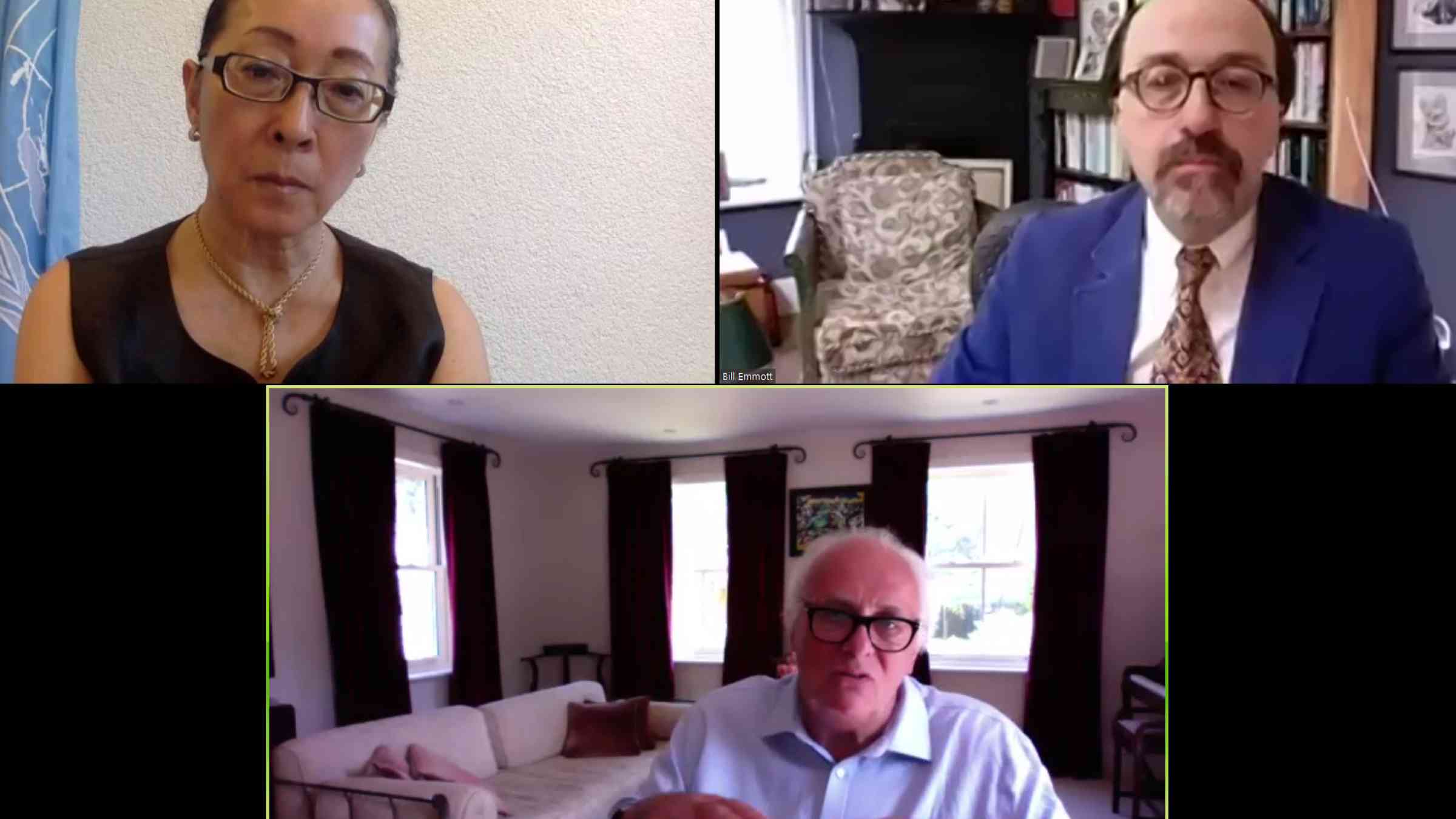Will resilience be the buzz word for the COVID-19 recovery?

GENEVA - The buzz-word of the post-COVID-19 recovery is likely to be “resilience.”
That’s the forecast of former UN Deputy Secretary-General, Lord Mark Malloch-Brown in discussion with the UN Secretary-General’s Special Representative for Disaster Risk Reduction, Mami Mizutori on “International Responsibilities and the Pandemic.”
“In the same way that austerity became the motif word post the financial crisis…I think the motif word of post-COVID is likely to be resilience. What does resilience imply? Shared burdens. Solidarity. Community over individual enrichment,” he said.
The need to overcome the lack of global leadership and find a common strategy to fight the COVID-19 pandemic was underlined by both Lord Malloch-Brown and Ms. Mizutori in a webinar organized by the influential UK-based Japan Society and moderated by Japan Society chairman, Bill Emmott, yesterday.
The COVID-19 pandemic is further proof that risk has become systemic in today’s world and so “our response must become systemic and not siloed,” said Ms. Mizutori.
She highlighted that the pandemic is not only a global health disaster but also a socio-economic disaster hitting the world’s most vulnerable the hardest, including women, children and youth, older persons, migrant workers, displaced people and refugees, and persons living disabilities, among others.
“For stronger governance of risk, governments should have national and local strategies for disaster risk reduction with all the hazards they are facing included,” said Ms. Mizutori who also heads the UN Officer for Disaster Risk Reduction which monitors implementation of the Sendai Framework for Disaster Risk Reduction, the global blueprint for reducing disaster losses.
“This is one of the seven targets of the Sendai Framework and as the deadline is the end of this year. We have been pushing strongly for this target to be achieved. Currently only 81 countries have a national strategy, and few include biological hazards. Now we are supporting member states so that biological hazards are included in their strategies,” she said.
Ms. Mizutori expressed her strong support for the World Health Organization and said it should not be deprived of funding to carry out its mandate. “The public health agenda should not become political because this is about the health and safety of every person in every country,” she said.
Lord Mark Malloch-Brown lamented the nationalist approach to tackling the pandemic so far and predicted massive changes in the global economy with serious consequences for the developing world.
He cited the collapse of remittance earnings, a repatriation of production to western economies and a massive wave of automation due to physical distancing and other safety measures.
Lord Malloch-Brown said the International Crisis Group (ICG) which he chairs, was particularly concerned about the impact on conflict-affected populations including refugees and non-refugee civilian populations already starved of health services by civil war.
The ICG is also concerned about the whole damage that has been done to international crisis resolution efforts including the Afghan peace talks.
COVID-19 is also interfering with the rotation in and out of UN Peacekeeping forces for fear that they might become vectors for the spread of the disease.
He said there is also a huge risk to social order that we are starting to see. There has been a suspension of social protests but the issues that fed them have been aggravated by the economic slowdown.
He also identified several scenarios where the pandemic has been used to exploit power to suppress dissent and create doubts about elections.
Lord Malloch-Brown said the world is entering into an extraordinarily difficult period in terms of economics, jobs and long-term threats like climate change. The national approach evident in the pandemic response is not sufficient to meet the challenges that lie ahead.
He said the countries that have done well in responding to the pandemic were marked by good government including emerging nations like South Africa and Peru alongside South Korea, Germany, Norway and others.
Science-based, evidence-led response takes you inevitably to a model of global cooperation required to tackle issues like rebuilding the economy and building back better not just in terms of addressing pandemic risk but also climate change crises.
Lord Malloch-Brown hoped that entering 2021 the world would see the beginnings of a more coherent international response.